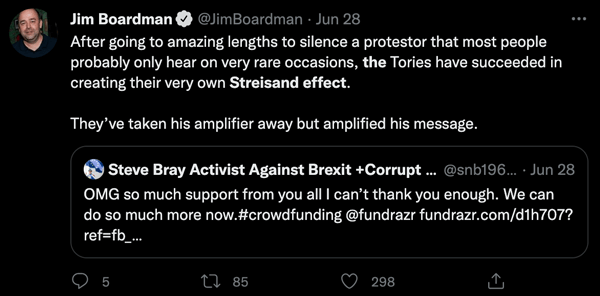The Streisand Effect
When an attempt to hide information draws greater attention
Example
Remember when Devin Nunes sued that Twitter account pretending to be his cow? Classic Streisand Effect

Related Slang
| Go viral | To become popular on the Internet |
| Techlash | Backlash against big tech companies |
| Blow up | To become successful |
| Memeophobia | Fear of being in a viral picture or video |
| Ghost banning | Censoring a social media user's posts |
| Shadowban | To secretly censor a social media user's content |
| Comment ghosting | Removing a user's comments |
| Sock puppet account | A fake online identity |
| Infodemic | A viral spread of misinformation |
 Can you score under par in this golf terms quiz?
Can you score under par in this golf terms quiz?
Netizens use the Streisand Effect to describe situations in which a person or group's attempts to hide information backfire, instead drawing increased attention to that information. As you might expect, this slang term originated via the actions of one Barbara Streisand.
In 2003, Streisand sued a photographer to get a picture of her mansion removed from a public collection of California coastline photos. In Streisand's mind, the photo violated her privacy and gave away information about where she lived. However, before Streisand sued, the photo had been downloaded only six times. After Streisand sued, and her lawsuit became world news, many, many more people downloaded the photo. (Also, Stresiand's lawsuit was eventually dismissed.)
Celebrities, governments, and organizations who attempt to censor information may all fall victim to the Streisand Effect, if their attempts at censorship go viral. The rise of social media and the 24-hour news cycle has only made the Streisand Effect more prevalent, as it's now quite easy to call attention to info that someone is attempting to hide.